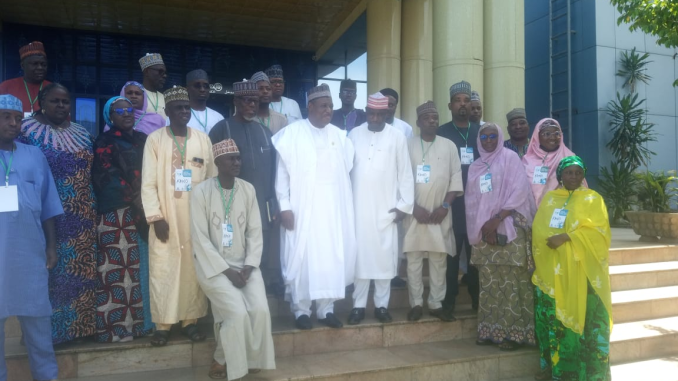
By Funmilayo Adeyemi
The Federal Government has pledged to lead efforts to reduce community resistance to the Adolescent Girls Initiative for Learning and Empowerment (AGILE) project.
Dr Nasiru Sani-Gwarzo, Permanent Secretary of the Federal Ministry of Education, announced this at the AGILE project’s Implementation Mission in Abuja on Monday.
He said he is committed to addressing this through advocacy.
“I am making a commitment to support the AGILE programme by removing community resistance and backlash in fighting the challenges of rejection through community advocacy.
“There are so many controversies surrounding the understanding of the AGILE project, and I am willing to personally and officially support it”.
He explained that the AGILE project focuses on enhancing educational opportunities for adolescent girls, tackling cultural and socioeconomic barriers to education.
“Our approach includes infrastructure development, provision of WASH facilities and instructional materials, community engagement, and awareness campaigns to foster a supportive environment for young girls.
“We have also strived to strengthen the capacity of Schools Based Management Committees (SBMCs), equipping them with the resources required to sustain these initiatives and foster community ownership and sustainability”.
The World Bank Country Director, Dr Ndiame Diop commended Nigeria’s commitment to youth empowerment, noting that educating adolescent girls is a smart economic investment.
“It’s not just the right thing to do, but it’s also the smart thing to do because it brings economic benefits.
“One of the best ways to empower adolescent girls is through education and economic opportunities, and that is exactly what AGILE is doing,” he said.
AGILE National Coordinator Mrs Amina Buba-Haruna stated that the project targets girls aged 15-20, focusing on safe learning spaces, better infrastructure, and life skills.
She added, “Through the project, we have been able to train 20 master teachers in Information and Communication Technology (ICT) and 200 teachers in specialised areas”.
Buba-Haruna noted that while the project focuses on girls, boys have also benefited, and it has provided second-chance education for out-of-school girls aged 15-22, including those with special needs.
The AGILE project, currently implemented in 18 states, aims to reach over 25 million beneficiaries, including 15.2 million students, with 8.6 million being adolescent girls, out-of-school girls, and girls with disabilities.
The states involved are Borno, Ekiti, Kebbi, Kaduna, Plateau, Katsina, Kano, Adamawa, Kogi, Nasarawa, Niger, Bauchi, Jigawa, Yobe, Kwara, Gombe, Sokoto, and Zamfara.
(NAN)
